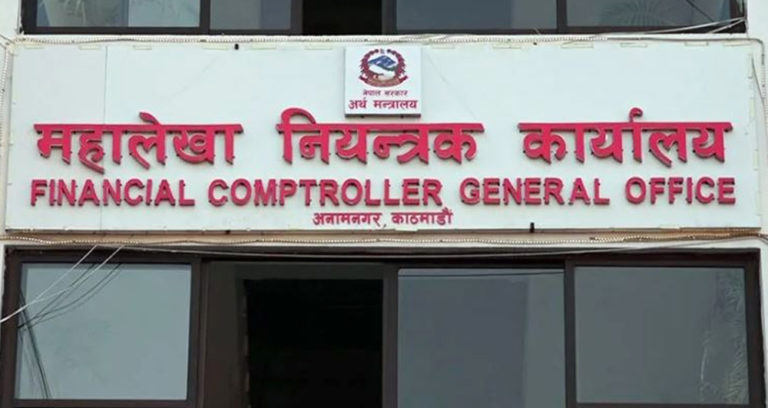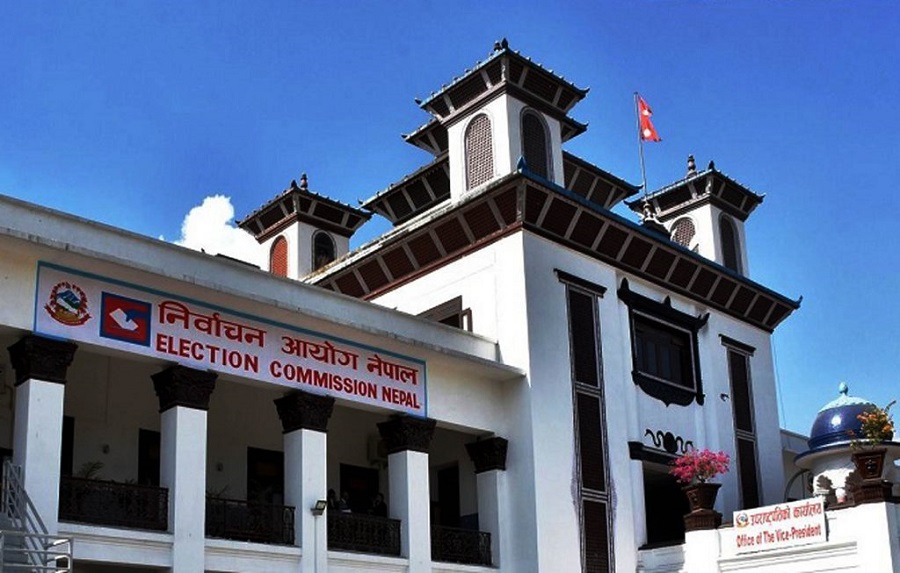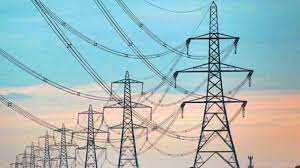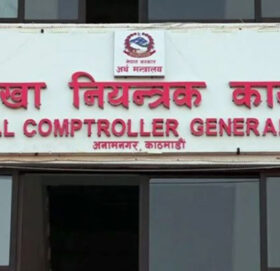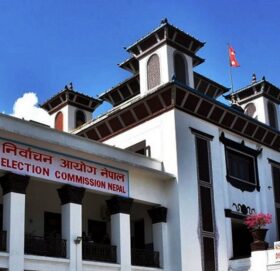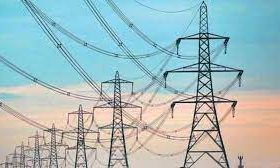Resurgent Challenges and Emerging Opportunities Define the Current nigeria news Landscape, Fueling I
- शनिबार, कार्तिक ३०, २०८२

- Resurgent Challenges and Emerging Opportunities Define the Current nigeria news Landscape, Fueling Investor Interest.
- Economic Diversification and the Shift from Oil Dependence
- The Role of Technology and Fintech Innovation
- Political and Security Challenges Impacting Investment
- Infrastructure Development and Investment Needs
- Regulatory Reforms and the Ease of Doing Business
Resurgent Challenges and Emerging Opportunities Define the Current nigeria news Landscape, Fueling Investor Interest.
The current landscape surrounding nigeria news is marked by a complex interplay of resurgent challenges and emerging opportunities. Recent shifts in the global economic climate, coupled with internal socio-political dynamics, are significantly influencing investment decisions and shaping the future trajectory of the nation. Understanding these intricate factors is crucial for anyone seeking to engage with or analyze the Nigerian market. The interplay between political stability, economic reforms, and social progress will determine the nation’s success in attracting foreign investment and achieving sustainable development.
Navigating this environment requires careful consideration of both the risks and rewards. While headlines may often focus on security concerns and infrastructural deficits, a closer examination reveals a nation brimming with potential. A youthful and dynamic population, abundant natural resources, and a growing entrepreneurial spirit, all contribute to a compelling narrative of resilience and innovation. This creates a compelling landscape for those monitoring nigeria news and assessing its investment viability.
Economic Diversification and the Shift from Oil Dependence
For decades, Nigeria’s economy has been heavily reliant on oil revenues. However, recognizing the volatility of global oil markets and the need for sustainable growth, the government is actively pursuing a strategy of economic diversification. This involves investing in sectors such as agriculture, manufacturing, and technology. Significant strides are being made in attracting investment into these areas, with a focus on creating a more robust and resilient economic base. The success of these efforts will be critical in mitigating the risks associated with fluctuating oil prices.
The push for diversification isn’t without its challenges. Infrastructure gaps, bureaucratic hurdles, and access to finance remain significant obstacles for businesses. However, the government is implementing reforms aimed at addressing these issues, including easing regulations, improving infrastructure, and providing financial support to small and medium-sized enterprises (SMEs). These initiatives are key to unlocking Nigeria’s economic potential.
To illustrate the diversification efforts, consider the following breakdown of sector contributions to Nigeria’s GDP:
| Oil & Gas | 37.7% |
| Agriculture | 23.2% |
| Manufacturing | 10.5% |
| Services | 28.6% |
The Role of Technology and Fintech Innovation
Nigeria is experiencing a rapid technological transformation, particularly in the fintech sector. The country boasts a large unbanked population, creating a significant opportunity for fintech companies to provide innovative financial services. Mobile money, digital payments, and online banking are gaining widespread adoption, driving financial inclusion and boosting economic activity. This expansion is showing in the recent growth measured by nigeria news sources.
The growth of fintech is not merely a matter of convenience; it’s also having a profound impact on financial inclusion, particularly for those in rural areas who have historically been excluded from traditional banking services. This accessibility allows for greater participation in the formal economy, fostering entrepreneurship and economic empowerment. The challenges of fraudulent activities, regulatory uncertainties, and the need for robust cybersecurity measures still pose hurdles in the fintech space.
Here’s a list of prominent fintechs actively shaping the Nigerian financial landscape:
- Flutterwave: A leading payment technology company facilitating cross-border transactions.
- Paystack: A payment gateway enabling businesses to accept online payments.
- Interswitch: A pan-African digital payments and infrastructure company.
- PiggyVest: An online savings and investment platform.
Political and Security Challenges Impacting Investment
Despite the economic opportunities, Nigeria continues to face significant political and security challenges. Ongoing concerns about corruption, political instability, and insecurity in certain regions of the country are hindering investment and dampening economic growth. The security situation, particularly in the North-East and North-West, remains a major concern for investors.
Addressing these challenges requires a multi-faceted approach encompassing good governance, strengthened security forces, and investment in social and economic development. Transparency and accountability are crucial in rebuilding investor confidence and creating a more stable and predictable business environment. Recent shifts in political leadership offer signals for potential positive change, but their impact remains to be fully seen and is followed closely through nigeria news updates.
Key Security Concerns in Nigeria include:
- Boko Haram Insurgency: Ongoing terrorist activities in the North-East region.
- Farmer-Herder Conflicts: Clashes over land and resources in the Middle Belt.
- Piracy and Kidnapping: Threats to maritime security and safety of personnel.
- Banditry: Criminal groups engage in kidnapping for ransom and cattle rustling in the North-West.
Infrastructure Development and Investment Needs
A significant constraint on Nigeria’s economic growth is the deficit in infrastructure. Poor roads, unreliable power supply, and inadequate transportation networks hinder business operations and raise production costs. Addressing this infrastructure gap requires substantial investment from both the public and private sectors. The government is actively seeking partnerships with international investors to finance critical infrastructure projects.
Priorities for infrastructure investment include power generation and distribution, road and rail networks, ports and airports, and broadband connectivity. These investments are not only essential for economic growth but also vital for improving the quality of life for Nigerians. Furthermore, efficient infrastructure is a prerequisite for attracting foreign direct investment. Careful monitoring via nigeria news is crucial.
Here’s a breakdown of planned infrastructure investments in Nigeria:
| Lagos-Ibadan Railway | 2.0 | Chinese Loans & Federal Government |
| Abuja-Kano Railway | 2.5 | Chinese Loans & Federal Government |
| Power Sector Reforms | 15.0 | Private Investment & International Development Banks |
| Road Infrastructure (Various Projects) | 10.0 | Federal Government & Infrastructure Funds |
Regulatory Reforms and the Ease of Doing Business
The Nigerian government recognizes the importance of creating a more business-friendly environment to attract investment and stimulate economic growth. Recent efforts have focused on streamlining regulations, reducing bureaucratic obstacles, and improving the ease of doing business. These reforms are aimed at creating a level playing field for both domestic and foreign investors.
Initiatives include the establishment of a Presidential Enabling Business Environment Council (PEBEC) and the implementation of various regulatory reforms to simplify business registration, obtain permits, and resolve commercial disputes. These are being actively tracked in recent reporting on nigeria news. Further improvements in transparency, accountability, and the rule of law are essential to sustain these positive changes and build long-term investor confidence.
Key Areas of Regulatory Reform:
- Company Registration: Simplified processes for starting a new business.
- Taxation: Reduced tax burdens and streamlined tax administration.
- Trade Facilitation: Improved customs procedures and reduced trade barriers.
- Contract Enforcement: Strengthened legal framework for enforcing contracts.
The ongoing journey of Nigeria is characterized by a dynamic interplay of challenges and prospects. While political and security hurdles persist, the nation’s economic diversification efforts, coupled with technological advancements, create a promising outlook for the future. Successful navigation of these complexities will unlock Nigeria’s vast potential, making it an increasingly attractive destination for investment and a significant player on the global stage. Monitoring and analyzing ongoing developments as conveyed through nigeria news remains crucial for prospective investors and partners.

Aventure-se na trilha frenética e veja se consegue guiar a galinha até o ovo dourado em jogo chicken

Beyond the Climb Master Crash Games, Leverage an aviator predictor, and Witness Provably Fair Live B

Reshaping the Narrative Nigeria news today signals pivotal shifts in investment landscapes and geopo




